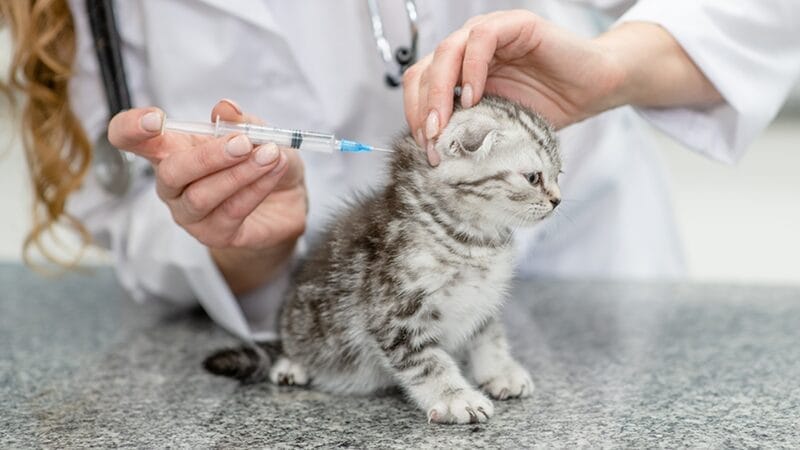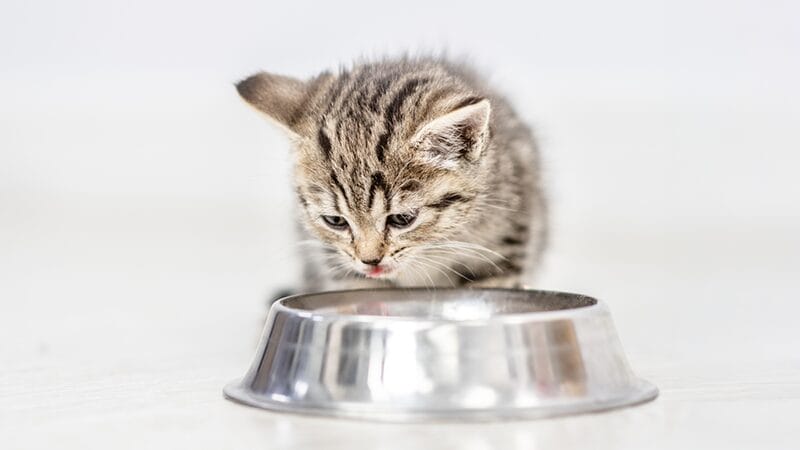
Kitten Care 101: Vet Approved Guide for the First Year
Discover kitten care tips for new owners. Learn about litter box training, vet visits, nutrition, and more for a happy, healthy cat.
Welcoming a new kitten into your home is an exciting experience, but it requires careful preparation to ensure their safety and wellbeing. This vet-approved guide covers essential aspects of caring for your new kitten, from litter box training and veterinary care to nutrition, grooming, and behavior training.
Creating a Safe Environment for Your Kitten
Kittens are naturally curious and love to explore their surroundings, which can sometimes lead them into trouble. To create a safe environment, start by kitten-proofing your home:
- Secure electrical cords, wires, and small objects like coins, strings, ribbons, and dental floss (cats are particularly attracted to these items) that can be ingested and cause life-threatening gastrointestinal blockages in pets.
- Keep trash cans securely covered to prevent your kitten from accessing potentially hazardous items.
- Remove hazardous materials and fragile items from your kitten’s reach. Since cats are excellent climbers, be sure to secure items not just on the floor but also on high surfaces like cabinets and appliances.
- Cats are naturally drawn to nibbling on plants and greenery, but many common household plants, such as lilies, are toxic to them. For a comprehensive list of plants that are toxic and non-toxic to cats, you can consult the ASPCA’s guide.
- Create a cozy, quiet space for your kitten to rest and feel secure.
- Consider setting up a “kitten zone” with safe toys and scratching posts to keep them occupied.
Health Care for Your Kitten
Kittens require multiple veterinary visits during their first year to receive essential vaccinations and protection against diseases and parasites. Cats typically receive a series of vaccinations during their first year, beginning at 6 to 8 weeks old, with booster shots needed every 3 to 4 weeks until they are 16 to 18 weeks old. The core vaccinations usually include:
- FVRCP (Feline Rhinotracheitis, Feline Calicivirus, Feline Panleukopenia): Protects against upper respiratory infections and a deadly viral disease.
- Rabies: A mandatory vaccine that prevents a fatal viral disease that can be transmitted to humans.
Additional vaccines may be recommended based on your kitten’s lifestyle, such as cats that live outdoors or in multiple-cat households. These may include:
- Feline Leukemia Virus (FeLV): Protects against a virus that can cause cancer and immunosuppresion in cats.
- Feline Immunodeficiency Virus (FIV): Protects against a virus that weakens the immune system in cats.
Regular veterinary care is essential for maintaining your kitten’s health. The first year is particularly important for vaccinations to ensure the best possible vaccine coverage, as the level of maternally acquired immunity (antibodies from the mother) and nutrition can vary unpredictably in nursing kittens.

Your veterinarian will recommend heartworm and flea/tick preventative measures once your kitten is old enough. Various prevention options are available, including topical treatments, oral medications, and collars. For more information on flea product dos and don’ts, refer to our blog post.
Dental health is also crucial during your kitten’s first year. Start checking your kitten’s teeth early to prevent future dental problems. Brushing your kitten’s teeth daily is ideal, but doing so just two to three times a week can still make a significant difference by helping to prevent plaque and tartar buildup.
Spaying or neutering is a surgical procedure that sterilizes your kitten, preventing them from reproducing and helping control the population. This procedure also offers several health benefits, including reducing the risk of certain cancers.
For males, spaying/neutering reduces the risk of testicular cancer and undesirable behaviors such as spraying and fighting, which can lead to injuries and diseases like FIV. For females, it decreases the risk of mammary/breast cancer and eliminates the discomfort and behavioral changes associated with heat cycles, such as yowling and restlessness. Additionally, spaying or neutering can decrease aggression in kittens.
Generally, veterinarians recommend spaying or neutering kittens between 6 to 9 months of age. This timing helps ensure the procedure’s benefits are realized while minimizing potential risks.
Additionally, consider microchipping your kitten to increase your chances of reunification should they become lost.
Feeding Your Kitten for Optimal Health
Proper nutrition is vital for your kitten’s growth and development. Kittens have different nutritional needs than adult cats, requiring more protein and calories per pound of body weight. Very young kittens who aren’t yet able to eat solid food require bottle-feeding. For detailed guidance on this process, the ASPCA offers a comprehensive guide that covers the essentials of bottle-feeding kittens.
Kittens typically transition to eating solid food and eat 3 to 4 times a day until they are about 6 months old, gradually reducing to twice a day as they mature. Ensure your kitten always has access to clean water.
For more information on how to read pet food labels to ensure your kitten’s wellbeing, read our blog post.

Grooming Your Kitten
Grooming is an essential part of kitten care, helping to establish a bond between you and your pet while keeping them clean and healthy. When brushing your kitten, start with short sessions to help them become accustomed to the process. Gently clean their ears as needed, being careful not to insert anything into the ear canal.
While some breeds, like hairless cats, require special grooming attention, most cats don’t need frequent bathing. In fact, many cats dislike water, so bathing should be done as necessary, typically not more than once a month unless they get dirty. For cats that are particularly averse to water, consider alternatives like waterless baths or bath wipes.
Regular grooming sessions are a good opportunity to check for any skin irritations or abnormalities. This helps you catch any potential issues early on and ensure your kitten stays healthy.
Behavior and Litter Box Training
Behavior training is essential during a kitten’s first year. Establishing good habits early on can prevent future behavioral issues.
Here are some key kitten training tips:
- Positive Reinforcement: Reward good behavior with treats and praise.
- Socialization: Expose your kitten to various environments, people, and other animals.
- Play Therapy: Engage in play to burn off energy and teach appropriate behavior.
- Boundary Setting: Gently enforce household rules consistently.
- Redirect Undesirable Behavior: Use toys or scratching posts to redirect unwanted actions, such as scratching furniture.
To train your cat effectively, keep in mind that their attention span is short. Brief training sessions, combined with patience and repetition, will yield better results.

Kittens typically develop litter box habits between 3 to 4 weeks old, learning from their mother. They naturally bury their waste and prefer a litter box with low sides and fine, sandy, fragrance-free litter. To ensure your kitten’s comfort and hygiene, place litter boxes in quiet, separate locations throughout your home. A good rule of thumb is to have one litter box per cat, plus one extra. For multi-story homes, consider having at least one litter box per floor. This helps prevent territorial disputes and ensures your kitten always has access to a clean and private area.
If your kitten misses the learning window with their mother, you’ll need to guide them. Place your kitten in the litter box after meals and naps to create a routine. If you see them crouching, guide them to the litter box. Scoop the litter box daily and change the litter twice a month. Keep in mind that accidents happen, so it’s essential to be patient and positive. Clean messes with enzymatic cleaners and reward successful uses with treats and praise.
For more information on common cat behaviors, refer to our blog post.
By following these guidelines, you’ll be well on your way to raising a happy, healthy kitten. Remember, every kitten is unique, so be prepared to adapt these recommendations to your pet’s individual needs and personality.
Visit our Pet Care Resources library for more pet health and safety information.
FAQs
What should I feed my kitten?
How do I litter box train a kitten?
What vaccinations does my kitten need?
Learn More
For ways to ensure your pet lives a happier, healthier life, visit our Pet Care Resources library.
Pet Care ResourcesContents
Learn More
For ways to ensure your pet lives a happier, healthier life, visit our Pet Care Resources library.
Pet Care Resources


